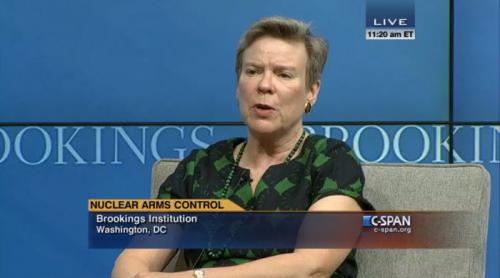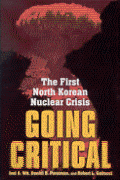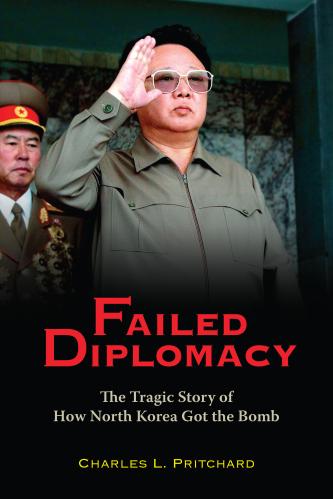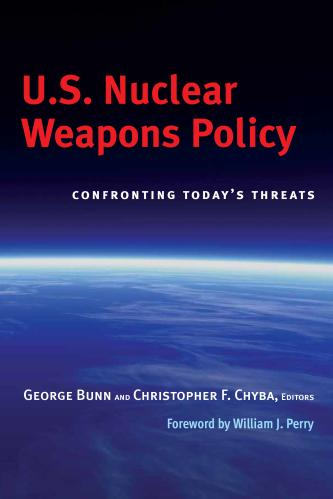This interview is adapted from a segment in the Brookings Cafeteria podcast called “Coffee Break,” where a scholar at Brookings introduces their background, research interests, and offers book recommendations. The transcript has been edited from the audio recording.
My name is Ottawa Sanders. I am a post-doctoral research fellow for the Foreign Policy Program at Brookings Institution.
 Q: Where did you grow up?
Q: Where did you grow up?
I grew up in Baltimore, Maryland, on the east side. I lived there with my mother and my sister. When I was in middle school, I moved to Howard County, Maryland, where I stayed until I went to college at the age of 18.
Q: What inspired you to become a scholar?
This will probably put me in the category of being a big geek, but when I was in high school, I had in my bedroom a full-size framed poster of the Periodic Table of the Elements. At the time, I wanted to be a medical doctor and I was, and remain, fascinated by science and fascinated by knowledge. I remember staring intensely at the small photo of Marie Curie, after which the element curium is named. I just remember thinking, “I want to be like her one day. I want to make these big discoveries.”
I went to the University of Michigan to become a medical doctor. I barely made it out of inorganic chemistry and organic chemistry did not go well at all. So, I dropped that major and instead majored in political science with the hope of perhaps finding myself.
Along the way, I met J. David Singer, who was at the time, a professor of Political Science. He is, I think, one of the primary reasons why I do what I do. I’ve always liked science and what I learned from him was that you can adopt a more behavioralist approach to political science by doing research in an empirical, systematic way using the scientific method, much like how we do research in the physical sciences. Being somewhat of a geek and enjoying science and the rigor of research, I was immediately drawn to the approach.
I took a seminar with him called War and the Environment and everything was going well. He must have saw something in me because he looked at me dead in the face in the middle of class and said, “You’re going to study nuclear weapons proliferation.” I thought to myself, “What is he talking about?” I didn’t really know what that meant.
I was a research assistant for him for a full year, and then I went off and pursued my graduate training. At the time, I was still interested in weapons proliferation. I knew it was an important topic, but it didn’t quite click for me. It wasn’t, yet, personally meaningful.
I had a rather important ‘aha’ moment in the middle of a seminar where I was teaching my students the details of the nuclear fuel cycle, uranium enrichment, and the extraction of plutonium from spent plutonium rods. Something within me clicked. I thought to myself, “This is the weaponization of knowledge and the weaponization of science. This is what I’m supposed to study. This finally makes sense for me.”
Q: What do you think is the most important issue that we’re facing today?
I think the question of the most important issue we’re facing today is a bit challenging because there are many issues. I think that we are at an important tipping point for domestic political affairs as well as international affairs. But, if I had to boil it down to a single issue, I think that the erosion of trust and the erosion of a cooperative spirit within the international system is quite disturbing because it has very real implications for international peace and stability, broadly defined here as the absence of armed conflict.
Consider, for example, the treaties and agreements that make up the nonproliferation regime. Treaties and agreements exist because of trust and cooperation. One side has to trust that the other side will uphold the agreements and the stipulations of the treaty. There needs to be a significant level of cooperation, such that the parties can sit down at a table and amicably hash out disagreements in a way that is productive and in a way that sustains the agreement.
What we’re finding in the instance of arms control is an erosion of trust and an erosion of the co-operative spirit, as evidenced by the collapse of the Intermediate-Range Nuclear Forces Treaty, which was an agreement made between the U.S. and the USSR, now Russia. The INF Treaty prohibits certain missiles with the range between 500 and 5,500 kilometers. The concern is that the collapse of the INF will restart a nuclear arms race between the two countries.
In addition, the New Strategic Arms Reduction Treaty, also known as New START, is at risk of not being renewed. It is set to expire in February 2021, and the tensions between the U.S. and Russia are manifesting in this particular area because there is a concern by both sides and other policy analysts that the treaty is not going to be renewed or replaced.
Q: What are you working on right now?
As a scholar at Brookings, I work very hard to think of ways in which I can apply my expertise in nuclear weapons proliferation to understand the weaponization of Artificial Intelligence. We will inevitably have a conversation as a nation about preventing the spread of AI weapons. We’ve done so in other instances of emerging technology, such as nuclear weapons and biological and chemical weapons. We will do so again for AI weapons. The question that needs to be answered is: How do we distinguish a military-use AI program from a civilian or commercial AI program?
Answering this question is not easy. One challenge is that, while there is an overlap between AI and nuclear weapons, I think that they are fundamentally distinct. AI is really a facilitating technology similar to electricity. While it makes sense that AI systems can be incorporated into existing conventional or nuclear capabilities, you need not have an integration of AI into a piece of military hardware for AI to have an impact or an important addition to a state’s military capabilities. For example, AI can be used to enhance or augment decision making, making it easier to make predictions that have very real consequences for the battlefield. But, we’re not talking about deploying a new weapon system, per se, in that example.
So, while it is true that AI and nuclear weapon systems overlap, I think that there are some rather significant fundamental differences between the two types of technology, which makes researching AI a little bit more challenging, but also exciting.
Q: If you could recommend any books for our listeners, what would it be?
Recommending a book to listeners is a really fun question. I really enjoy fiction and I’m particularly interested in books that are written by the Japanese author, Haruki Murakami. I’m currently reading a book written by him called Kafka on the Shore, and it is a delightful coming of age story about a young boy who leaves behind his family and his friends to go off and make some discoveries of his own. Murakami is a brilliant author who really knows how to entangle our sense of reality with a sense of imagination, fantasy, and play that makes for an exciting read.
However, if I could recommend one book, I would recommend The Power of Now by Eckhart Tolle. The book is a little controversial because some people, who have heard of it or have read it, might conclude that it’s too “New-Agey.” There’s certainly a New Age and spiritual element to the book. But, the message of the book is a simple one. It is to recognize and appreciate more the present moment; the here and the now.
This is important because I think that a lot of policy analysts, such as myself, spend a lot of time projecting ourselves into the future, so as to arrange certain policies that will make for a better future.
That is obviously a laudable and necessary thing to do. But, to be reminded of the present moment and to be grateful for things as they are right now, even though they might be challenging, really empowers us and gives us the motivation, the energy and the inspiration to create a better future.
The Brookings Institution is committed to quality, independence, and impact.
We are supported by a diverse array of funders. In line with our values and policies, each Brookings publication represents the sole views of its author(s).








Commentary
Meet Ottawa Sanders, post-doctoral fellow in Foreign Policy
February 3, 2020